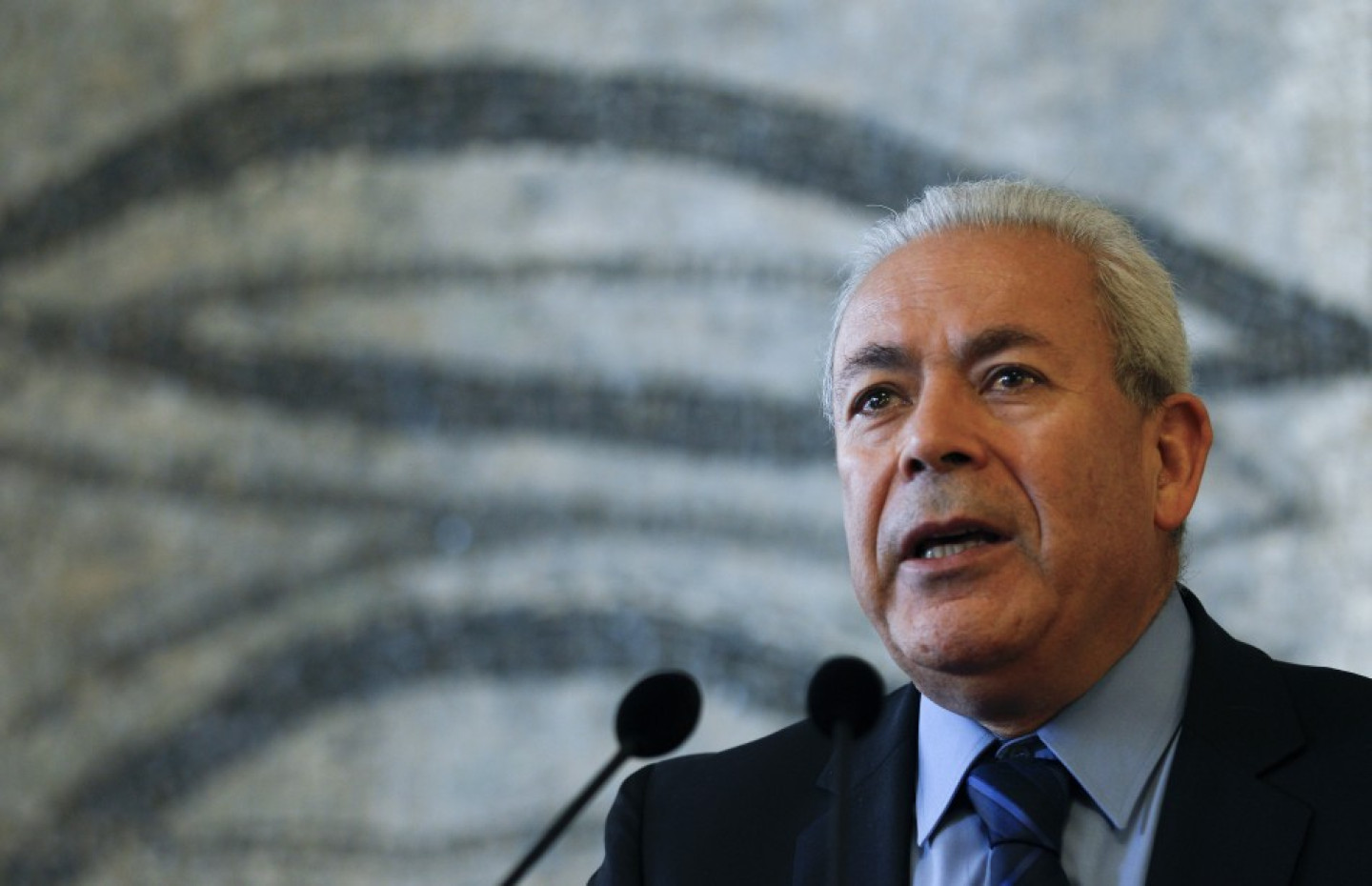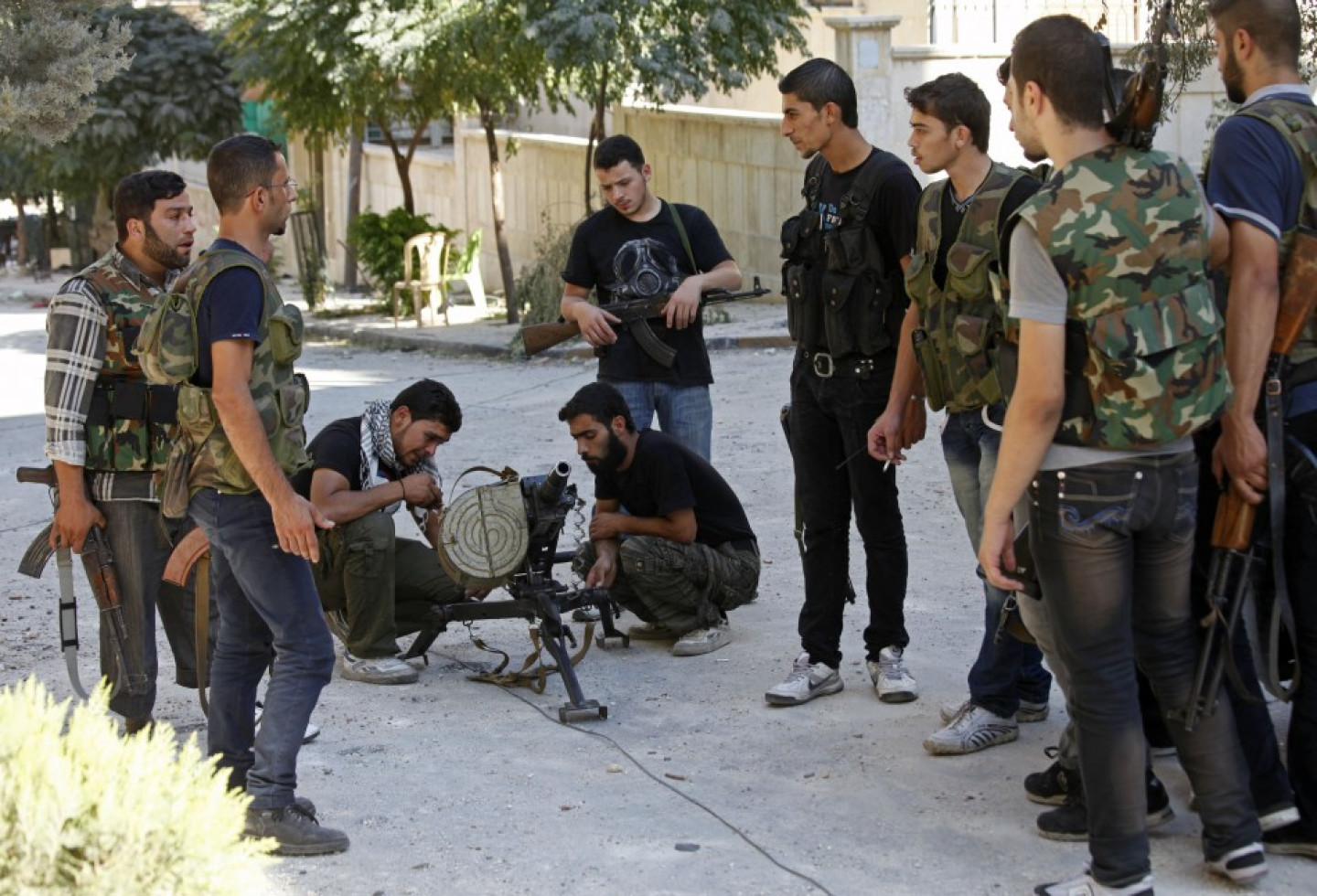Opposition Figure Suheir Atassi: 'Syria is a Business for a Mafia'

The Syrian state has not been a country but a "business for a mafia" according to Suheir Atassi, human rights activist and leading figure of the opposition to President Bashar al-Assad.
A member of the Damascus Declaration for Democratic Change, Atassi was arrested in 2005 and again in 2011 after providing an eye-witness account of the uprising to Al-Jazeera.
During a conference at London's LSE on the state of the Syrian revolution after 18 months of bloody crackdown by President Assad's forces against its opponents, Atassi and other opposition figures have voiced their disappointment at the failure of the international community to find a solution to the conflict.
"We have been let down by the international community," she said. "They found excuses such as the lack of unity by the opposition, the fear for minority groups and extremists. They say they despise foreign intervention, but what they call the Iranian and Hezbollah active support to the regime?"
In describing Syria as a "business for a mafia," Atassi referred to Assad's Alawite sect, who hold the highest positions in the state and are widely reported to have abused these positions for personal gain.
Armed people
The conflict, which is in its eighteenth bloody month, has seen president Bashar al-Assad ordering a use of heavy weaponry against his own people. What started as a peaceful, nationwide and pro-democracy movement in the wake of successful revolts in Egypt and Tunisia became a bloodbath like no others, with villages swept away, towns ravaged and Syria's three biggest cities - Damascus, Aleppo and Homs - badly hit.
At the beginning, youths took to the streets to demand democracy, chanting "freedom" and "peace". Now, scared people in the villages are in a constant search for weapons to defend themselves.
"No one in Syria chose to militarise, move to armed struggle." Burhan Ghalioun, prominent professor at Universite' Sorbonne Nouvelle, long time Syrian opposition activist and former chairman of the Syrian National Council (SNC), said.
"It was the regime who forced us to shift to militarisation. We shifted away from peaceful demonstrations - sometimes we had 800 and 900 a day - to what I call 'armed people', people in every single village with the obsession of finding weapons to defend themselves from the attack of the regime."
A divided opposition
Ghalioun, an academic who led the SNC until May 2012 when he resigned due to the failure to unite the opposition, admitted that internal divisions have prevented it from being an effective force.
The SNC, created as a coalition of seven opposition groups with the aim of providing a credible alternative to Assad, has been dogged by internal divisions as well as a lack of organisation and communications.
"The opposition is divided like the international community, and has failed," he said.
He also rejected the notion of what is happening in Syria as a civil war. "The challenge now is how people in the press and political analysis described what is happening in Syria as a Civil War," he explained. "It's actually a war against the people. There are reactions here and there, but the bulk of what is happening is that people are shelled on a daily basis."
The SNC has often been accused of being dominated by Islamists. Ghalioun himself faced allegations that he is too close to the Muslim Brotherhood - a major component of the Council.
'West must change tactics'

The Western idea of al-Qaida Islamists flocking to the Free Syrian Army (FSA) might be an exaggeration, but Atassi warned the international community that the terrorist organisation "will gain ground unless the West changes tactics and supports popular uprising against Assad".
"The FSA is fighting two battles: one against the brutal regime of Assad and the other one against extremist elements to rescue the revolution," she explained.
Atassi also responded to accusations made by New York-based Human Rights Watch, which claimed that armed opposition groups have committed human rights abuses such as torture, extrajudicial or summary executions and ill-treatment of detainees.
"Many FSA brigades have signed a code of conduct to prevent human rights violations," she said.
'We do not differentiate'
The number of foreign fighters joining both sides of the conflict - which according to some reports surpasses a thousand - is another worrying aspect of the war waging across the country, as well as its increased sectarianism.
But Atassi pointed out that the Syrian opposition "will not differentiate among different sects".
"I don't talk about Sunnis or Alawites or Christians or Kurds," she said. "The revolution is [about] Syrian people against a brutal regime. If anything is sectarian, is the Syrian regime."
Other criticisms made of Syria's opposition have focused on the controversial support of Saudi Arabia and Qatar. One frequent question is how a pro-democracy movement can welcome the backing of Saudi Arabia, one of the region's most suppressive dictatorships.
But without international assistance, Atassi argued, the opposition must take aid from whence it comes without discriminating. ""People of Syria live through massacres happening every day and can't differentiate where the support comes from," she said.
"I wonder myself whether this is fortunate, unfortunate or anything else, but this is a revolution across the Arab world now."
Thomas Pierret, lecturer in contemporary Islam, claimed that funds from Qatar and Saudi Arabia are actually very limited and confined to weapons and ammunitions. "It's enough for them to not be defeated, but it's not enough to win," he said.
The two opposition leading figures agreed that the situation in the international community is that of an impasse, with US not willing to step into the conflict ahead of presidential elections and China and Russia still opposing a staunch veto from the UN Security Council to any option of military intervention in Syria.
"We are at a stalemate," Ghalioun said. "There's lack of initiative and Brahimi [Lakhdar Brahimi, the new UN peace envoy to Syria after Kofi Annan's resignation] has little chance of success."
© Copyright IBTimes 2025. All rights reserved.





















